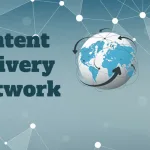SAP ERP is an enterprise resource planning application developed by the German firm SAP SE. SAP ERP includes the main business functions of an organisation. ERP, as an application, integrates the business processes of an enterprise. ERP mainly concerns its users, who are the owners and managers of a company’s business processes.
SAP ERP applications can be installed on to the servers of users who own and manage the company’s data. The advantage of using ERP software is that it can be accessed from any place with an internet connection. It is generally used to control the business processes of organisations. ERP can be controlled from the servers to the cloud or real-time data feed.
ERP or Enterprise Resource Planning can be managed by SAP ERP Software. SAP ERP system consists of various modules. One of the most used modules is ERP System which helps in the management of enterprise resources. In addition to this, there are other modules like SAP Master Data Management System, SAP Enterprise Search and Data Integrator, SAP XI Exchange Server, SAP XI Integration Manager, SAP XI Enterprise Manager, SAP XI Information Migration Manager, SAP XI Placement Manager, SAP XI Retail Management System, SAP XI Enterprise Recruitment Manager and SAP XI Warehouse Management System.
SAP ERP can integrate with other ERP modules like SCM, human resources, manufacturing, distribution and logistics. Some other ERP modules include SCM: Strategic Data Management, Supply Chain Management, Logistics Management, Purchasing and Inventory Control, Supply Chain Analysis, Customer Service, Sales and Service, Enterprise Resource Planning, Finance, and Human Resources Management Systems. As far as the role of human resources is concerned, ERP system can help in recruitment, training, development and payroll.
SAP ERP has made a significant contribution in the field of information systems, particularly in finance, supply chain management, supply chain analysis, and human resource management. SAP ERP can integrate both financial and non-financial modules. SAP’s real-time data processing capability has made it a crucial part of supply chain management and finance. As far as the manufacturing module is concerned, SAP’s manufacturing applications can track all the activities involved in the manufacturing process. This way SAP ERP can monitor all the variables that affect the production process, and in turn the performance and the quality of the products manufactured.
SAP ERP can help in the process of supply chain management, and in fact it integrates the functions of several other ERP modules. For example it can integrate modules like manufacturing control, work processes, material management, work orders, and asset management. SAP ERP can also integrate with modules like manufacturing performance management and supply chain management. All these processes and more can be done only by SAP ERP, and they are not that much different from each other.
SAP ERP software has many advantages over other ERP software such as Oracle, PeopleSoft, and SQL-Server databases. The biggest advantage of SAP ERP software is that it can easily interface with legacy applications and SAP modules, and SAP can support a wide scope of functionalities. SAP ERP software can also easily interface with the latest web based applications and SAP has complete solutions for web applications. SAP has many open source solutions and the majority of these solutions are free of cost.
SAP products are used in almost all the businesses today, and they have proved their efficiency in many companies. However, for organisations that need something more in depth, on-premise ERP systems, SAP eConnect or virtual ERP systems might work better. On the other hand, many companies are now switching to cloud computing solutions, and SAP Hana is making a comeback as well. SAP Hana was introduced a few years ago, and it was quite an experiment at the time. But its strength lies in its ability to create reports in real time and to apply complex business algorithms to terabytes of data. Cloud computing makes use of SAP Hana’s inbuilt intelligence engine, and this is one of the reasons why SAP is now getting serious about cloud computing.







